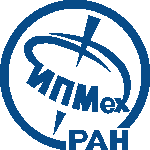
|
ИСТИНА |
Войти в систему Регистрация |
ИПМех РАН |
||
Complexation with chicken yolk phosvitin modulates antibacterial activity of chitosanстатья
Статья опубликована в высокорейтинговом журнале
Статья опубликована в журнале из списка Web of Science и/или Scopus
Дата последнего поиска статьи во внешних источниках: 14 мая 2025 г.
- Авторы: Berezin B.B., Kulikov S.N., Zhuravleva I.L., Ezernitskaya M.G., Piskarev V.E., Antonov Y.A., Bezrodnykh E.A., Tikhonov V.E.
- Журнал: Carbohydrate Polymers
- Том: 362
- Год издания: 2025
- Издательство: Pergamon Press Ltd.
- Местоположение издательства: United Kingdom
- Номер статьи: 123691
- DOI: 10.1016/j.carbpol.2025.123691
- Аннотация: In this study, it is shown for the first time that complexation with phosvitin does not restrict bacteriostatic activity of chitosan. Moreover, chitosan possesses the activity in the presence of phosvitin in acidic and alkalescent media. Besides, minimal inhibition concentrations of chitosan decrease in both acidic (pH 5.8) and alkalescent (pH 7.4) media, and chitosan shows two/fourfold higher bacteriostatic activity at 0.25 - 1.0 mg/ml phosvitin concentration in solution compared with that of chitosan alone due to an additive effect of chitosan and phosvitin, i.e. phosvitin modulates antimicrobial activity of chitosan in the acidic and alkalescent media. It is shown that the electrostatic and non-electrostatic forces are responsible for formation of soluble and insoluble chitosan/phosvitin complexes. Solely negatively charged complexes are formed in alkalescent medium. A faster interaction occurs in acidic medium, and insoluble complexes have five times as much phosvitin as the soluble ones. In their turn, soluble complexes enriched with chitosan are formed in both acidic and alkalescent media. It is presumed that a transfer of labile protons from phosvitin onto chitosan strengthens the electrostatic complexation between chitosan and phosvitin molecules. The finding can be promising for construction of phosvitin/chitosan-based drug-delivery systems and cosmetic compositions possessing antimicrobial activity
- Добавил в систему: Тихонов Владимир Евгеньевич
Прикрепленные файлы
| № | Имя | Описание | Имя файла | Размер | Добавлен |
|---|